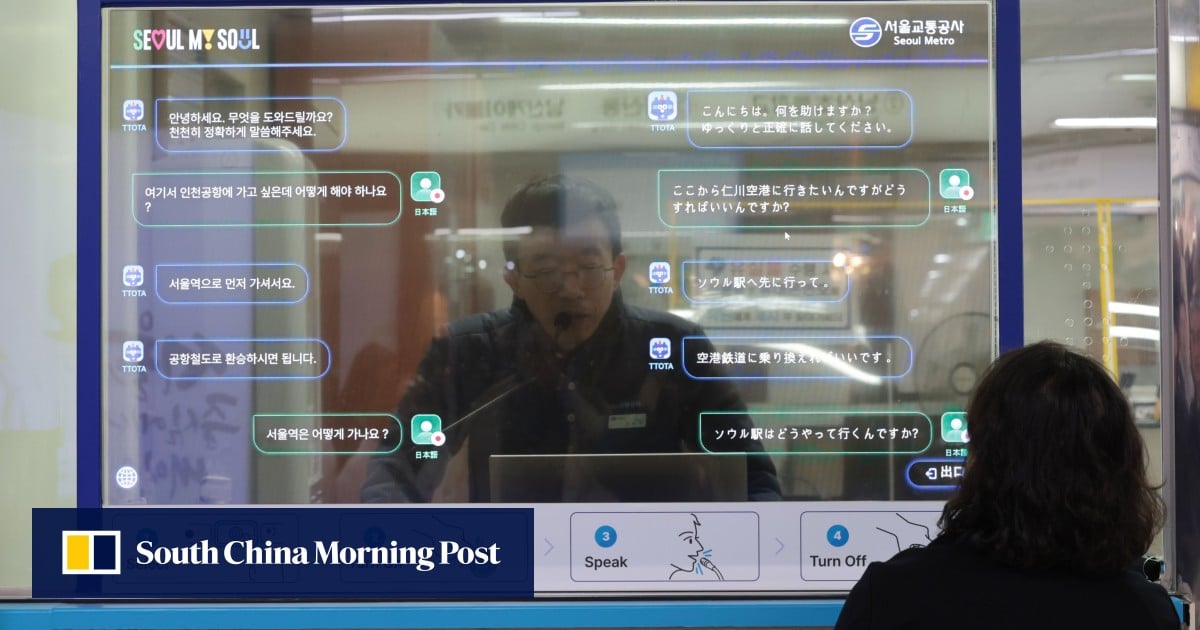At Seoul’s bustling Hongik University Station, French tourist Nagete Amandedano and her sister approach the information desk to ask for directions in their native language. But rather than speaking to a station employee, they interact with an OLED screen.
On the other side, a Korean employee – who doesn’t speak French – speaks to the pair, and his message is instantly translated so that they can understand.
Installed late last year, this AI-powered translation service is part of a broader initiative to assist the influx of tourists in one of Seoul’s busiest neighbourhoods. Now available at 11 stations with 13 language options and a tailored FAQ section, it represents a leap in how technology can be used to enhance visitor experiences.
“We’re constantly amazed by how technology is integrated anywhere you go in this country,” Amandedano said. “Wi-fi is so fast everywhere, and people enter their homes through a touch screen password door. But this surely tops it.”
Such innovations align with South Korea’s ambition to position itself alongside the US and China as a top-tier AI nation.
Visited 1 times, 1 visit(s) today


